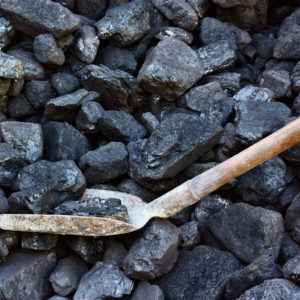President Donald Trump has launched an assault on environmental regulations, with the “rationale” that doing so will create jobs in the depressed areas of Appalachia that once depended on coal mining for prosperity.
The problem is coal mining isn’t coming back. Just like buggy-whip makers, whale-oil refineries and hot-lead printing plants, coal mines are relics of a bygone industrial economy that has moved on to cleaner, more-efficient sources of energy.
I’m not familiar with buggy whips or whale oil, but I do know a little something about printing as a craft. I was never a printer, but I did work in the newspaper industry as the printing craft began to disappear. It was replaced by the onset of electronic publishing, which eventually morphed into digital publishing.
Printers, like coal miners, once upon a time had a powerful union that had represented them for more than a century. The printers, their union and the news industry faced a choice as computer-driven publishing pushed into newspapers. They could have recognized that technological progress can’t be stopped, and the only way for printing jobs to endure would have been to retrain and redeploy workers in ways that captured their productivity and ensured their continued prosperity.
That would have meant investment in job training and education, and a commitment to fill newly created jobs with workers who had been displaced.
It didn’t happen. Instead, the printers’ union and the newspaper companies created “life-time” job guarantees, which kept union printers in dead-end jobs until they retired. In exchange for the job guarantees, the union agreed that new workers would not reap the generous benefits and good wages won over the years.
Meanwhile, newspaper companies were content to let the jobs disappear with retiring printers, and they never really invested in retraining. Instead, they plowed whatever savings were realized into shareholder dividends and earnings. In short, newspaper owners saw technological evolution of work in their industry as a way to line their pockets, not as a way to grow the news business and provide good jobs for the foreseeable future. The results of their actions are evident in the sorry state of print news media today.
I should mention that news industry owners also leapt on waning numbers of unionized printers as a way to hobble newspaper workers’ efforts to organize new union members. Something they saw as a win-win: More profits, plus weakened workforce representation.
Perhaps this is an inevitable outcome of evolving industries in an unregulated capitalistic economy, where labor markets are expendable so long as capital continues to produce dividends for its owners. I’m not sure.
What I do know is measures — like “lifetime job guarantees” for incumbents in unneeded printing jobs or environmentally reckless rescission of clean-air regulations to encourage unwise use of carbon fuel — never work.
The reasons are simple. First, no one can stop technological innovation. It’s what has driven economies and advanced the quality of life throughout human history. Technology — whether it be more efficient publishing or energy production that is more efficient and environmentally friendly — makes life better for everyone in the long run, even if it creates abrupt short-term disruptions in some industries. Unfortunately, short-term disruptions can become permanent if those who control the levers of industrial and political power don’t take action to retool and retrain the affected workforces.
Second, workers in these industries need to commit themselves to the future, not the past. I recognize that most of those who live in once-thriving coal mining towns don’t have the luxury of just “moving on” (or moving out, for that matter). And there is no longer enough union representation in the coal industry to protect them, as the printers’ union protected its incumbent members.
So it falls to the coal industry itself, which historically has shown absolutely zero commitment to its workforce, or it falls to public policymakers to help these workers reshape their lives.
Besides the devastating environmental effects of Trump’s assault on clean-air regulation and responsible land-use, his actions postpone, and perhaps kill, any reskilling and retraining of former Appalachian miners for future jobs. He also has raised false and unsustainable hopes that coal mining will be great again someday.
This is the cruelest consequence of his actions.

